If someone types ‘difficult choreography into the Google search bar, most of the results are going to have Kpop in the name as shown below. I even had my roommate, who has a deep personal hatred towards Kpop ever since her brother came back from Korea and would force her to listen to it, to double check my search results to make sure that they were not biased. They were not. (Here are screen shots of the results below.)
One thing that it seems any Kpopper can get a nonKpopper to admit is that Kpop has some noteworthy dance moves. Some may argue that it’s the difficult and unique choreography that has been aiding in the steady increase of views of Kpop music videos over recent years. When Kpop was first starting to develop, many routines were heavily based on traditional dances or didn’t include any choreography at all. However, in the early to mid-1990’s, the influence of western music and dance began to flood Korea and the choreography of Kpop began to morph into the art form it is today.And funnily enough, western music doesn’t really include dancing the way it did back in the early to mid-1990’s (the entire era that influenced Korean choreography). Three main styles of dance make up the core of the Kpop choreography world; B-Boying, Freestyle, and Hip-Hop.
It may be called B-boying in Korea but break dancing originated in the Bronx, NY in the late 1970’s and early 1980’s.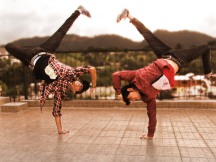 B-boying became a staple in the U.S. choreography industry and influenced more modern modes of dance, such as hip-hop. It consists of the top or up rock, footwork, spinning moves (power moves), and freeze. A prime example of a Kpop group that is probably known for using B-boying the most, is JYP’s Got7 who combine B-boy with martial arts to add flair, appeal, and uniqueness to their choreography.
B-boying became a staple in the U.S. choreography industry and influenced more modern modes of dance, such as hip-hop. It consists of the top or up rock, footwork, spinning moves (power moves), and freeze. A prime example of a Kpop group that is probably known for using B-boying the most, is JYP’s Got7 who combine B-boy with martial arts to add flair, appeal, and uniqueness to their choreography.
Freestyle originated from the early days of disco in the 1970s on street corners and public places where dancers would show off their improvisational skills.
Some performances are choreographed or partially choreographed, but improvisation is the main force behind freestyle and many people prefer the freedom of Freestyle dancing to other conventional types of dancing.

 The roots of Hip Hop were informal and group-based, but today the art form has become so popular that audience cultures informal performance venues started developing during the 1990s. Popular hip hop dancers can not only ‘rock a club scene, but they can also mesmerize an audience of dance experts or wow national television audiences.
The roots of Hip Hop were informal and group-based, but today the art form has become so popular that audience cultures informal performance venues started developing during the 1990s. Popular hip hop dancers can not only ‘rock a club scene, but they can also mesmerize an audience of dance experts or wow national television audiences.
So, the real question remains… what Kpop group or Idol has the most difficult choreography? There is no unbiased source for this information so I watched thirteen very different countdown videos for most difficult Kpop choreography with over 237 choreographies in all thirteen videos. And because no list is ideal, some videos were male groups, some were female groups, some dated back to a few years ago and some dated back to as recently as a month ago to balance each other out. I also looked at different list people made online, but at least with videos, I can see the dances too, so I promise I did my best to make the lists as fairly as possible and they will probably be out of date by the time I finish it. With that many videos a person is bound to get a couple different answers, so I’ll have two lists.The first one, (list 1) will just be groups who had multiple songs throughout the different videos the more videos a group or an Idol had and the more often each video appeared the higher their rank will be. The second (list 2) will be the songs and groups that appeared the most often and they won’t be ranked because there are a lot of ties for some of these songs.
List 1-groups with the most difficult choreography based on how often and how many of their songs appeared.
List 2-Songs that had the most difficult choreography based on how often they appeared.
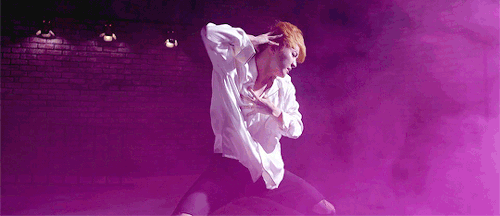



















 these are some the elements of a zealous passion-filled performance. No matter what kind of performer or genre of music a musician performs, the most important thing is to make a connection with the fans, make them feel important and make any event an experience that fans can’t forget.
these are some the elements of a zealous passion-filled performance. No matter what kind of performer or genre of music a musician performs, the most important thing is to make a connection with the fans, make them feel important and make any event an experience that fans can’t forget. It is more likely that we will find stories about our favorite artist
It is more likely that we will find stories about our favorite artist  venturing out to the clubs with his/her latest fling, throwing a party for whatever holiday is closest or being captured in the middle of his/her latest scandal, plastered across the tabloids or sliding across our news feeds. And while our loyalty may belong to our favorite musician/ group, the effort that they’re willing to invest into practice, fan events and performances the stronger our loyalty will remain.
venturing out to the clubs with his/her latest fling, throwing a party for whatever holiday is closest or being captured in the middle of his/her latest scandal, plastered across the tabloids or sliding across our news feeds. And while our loyalty may belong to our favorite musician/ group, the effort that they’re willing to invest into practice, fan events and performances the stronger our loyalty will remain. Unlike most
Unlike most  Although scandal in the world of Korean entertainment isn’t impossible and does occasionally happen it is very rare that it makes it to the public. Kpop idols may occasionally be seen at clubs, but the chances of anyone finding them in a club under improper or disreputable circumstances are about as likely as seeing a real-life unicorn trotting across your bedroom in the next five minutes. They are called Idols for a reason.
Although scandal in the world of Korean entertainment isn’t impossible and does occasionally happen it is very rare that it makes it to the public. Kpop idols may occasionally be seen at clubs, but the chances of anyone finding them in a club under improper or disreputable circumstances are about as likely as seeing a real-life unicorn trotting across your bedroom in the next five minutes. They are called Idols for a reason. Idols are expected to have the most
Idols are expected to have the most respectable and professional behavior while in public while working and while speaking to fans; in fact, often times cameras may capture members of a group reminding each other not to curse because they care being recorded live. The companies that sign these idols expect not only for them to maintain spotless reputations, they expect strong vocals,
respectable and professional behavior while in public while working and while speaking to fans; in fact, often times cameras may capture members of a group reminding each other not to curse because they care being recorded live. The companies that sign these idols expect not only for them to maintain spotless reputations, they expect strong vocals,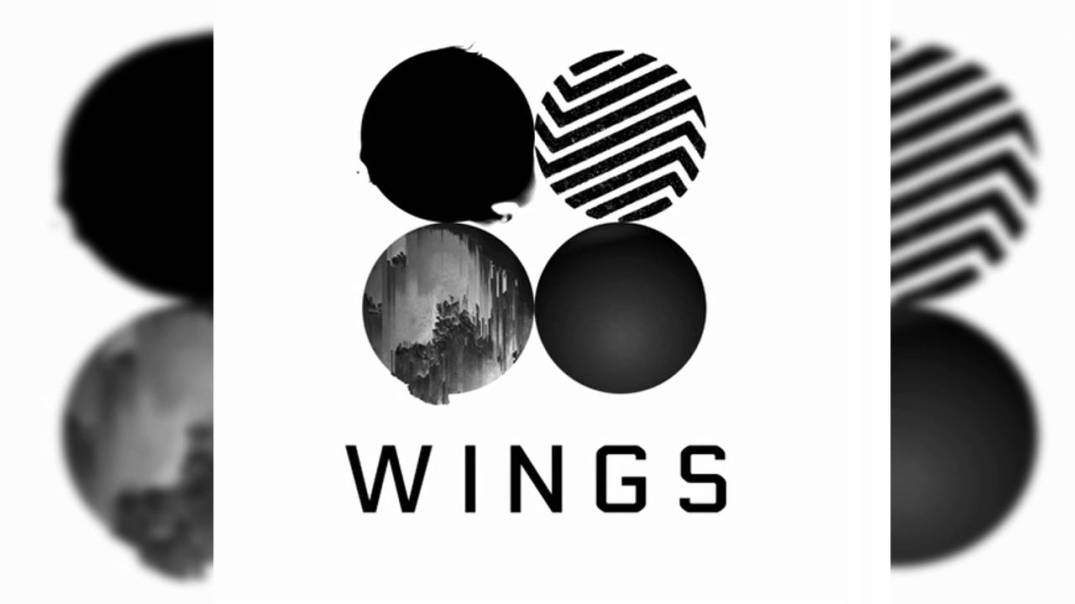

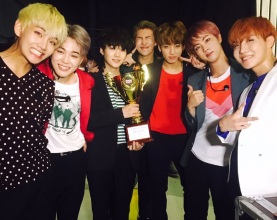


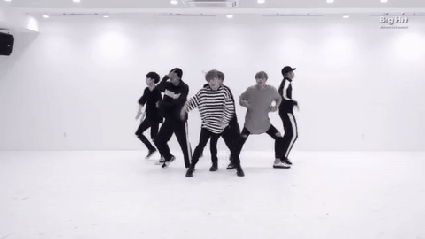 deeming the event in history as “Lining Up.” BTS set records all over the globe on charts in American, Brazil, Chile, Denmark, Finland, Hong Kong, New Zealand, Russia, Singapore, Sweden and more for a total of 27 countries.
deeming the event in history as “Lining Up.” BTS set records all over the globe on charts in American, Brazil, Chile, Denmark, Finland, Hong Kong, New Zealand, Russia, Singapore, Sweden and more for a total of 27 countries. 
 An “average” training period for trainees is between 2 to 4 years, but it can be several more years or as short as a few months. Jo Kwon, who’s a member of the JYP group 2AM, was a trainee for
An “average” training period for trainees is between 2 to 4 years, but it can be several more years or as short as a few months. Jo Kwon, who’s a member of the JYP group 2AM, was a trainee for


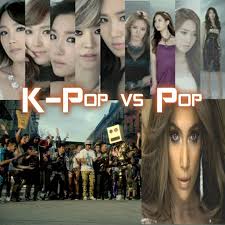 them, or maybe can’t stand, as some have put it the quote, “cheesy pop style of music” (granted Kpop isn’t the typical style of pop it’s much closer to hip-hop, but the
them, or maybe can’t stand, as some have put it the quote, “cheesy pop style of music” (granted Kpop isn’t the typical style of pop it’s much closer to hip-hop, but the

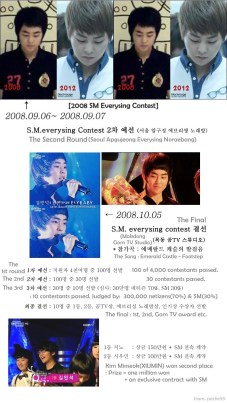 Winning a Sponsored Contest (talent/luck).
Winning a Sponsored Contest (talent/luck).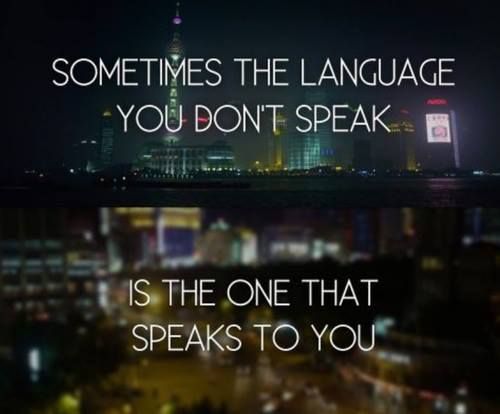
 Seoul. Considering most of these same people were singing along to PSY’s “Gangnam Style” it seems a little funny that they are so insulted by K-fans participating in something that’s not in English. People don’t seem to understand that just because learning other languages, especially ones like Korean, Thai, or Vietnamese, aren’t stressed in our school systems, it doesn’t mean that learning foreign languages isn’t stressed in other countries. According to the
Seoul. Considering most of these same people were singing along to PSY’s “Gangnam Style” it seems a little funny that they are so insulted by K-fans participating in something that’s not in English. People don’t seem to understand that just because learning other languages, especially ones like Korean, Thai, or Vietnamese, aren’t stressed in our school systems, it doesn’t mean that learning foreign languages isn’t stressed in other countries. According to the The same thing applies with Kpop and Kdramas. Firstly, there is, in most fans’ opinions, the obvious comeback of subtitles and translations. There are multiple sites dedicated to
The same thing applies with Kpop and Kdramas. Firstly, there is, in most fans’ opinions, the obvious comeback of subtitles and translations. There are multiple sites dedicated to
 and some Kpop idols may only be half Korean and some aren’t Korean at all, so they spend time learning Korean. For example, the Kpop group
and some Kpop idols may only be half Korean and some aren’t Korean at all, so they spend time learning Korean. For example, the Kpop group 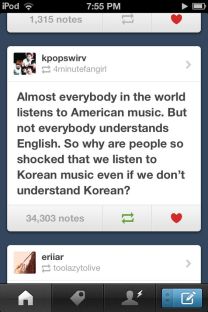 A foreign fan may not understand any part of the language, but they can see the context clues in music videos, the passionate expressions on performers’ faces, and most of all they can really feel the emotion a performer is singing with. “I Really Didn’t Know” is known as a classic because of the sad love story it tells dating back to when China invaded South Korea, and lovers could only call each other with a whistle. The song tells the story from the perspective of a woman whose lover has either been called off to war or died in the war, yet she can still hear the sound of whistling because she never thought he would leave her (perhaps permanently in death), “[she] honestly, really didn’t know.” This song was
A foreign fan may not understand any part of the language, but they can see the context clues in music videos, the passionate expressions on performers’ faces, and most of all they can really feel the emotion a performer is singing with. “I Really Didn’t Know” is known as a classic because of the sad love story it tells dating back to when China invaded South Korea, and lovers could only call each other with a whistle. The song tells the story from the perspective of a woman whose lover has either been called off to war or died in the war, yet she can still hear the sound of whistling because she never thought he would leave her (perhaps permanently in death), “[she] honestly, really didn’t know.” This song was
 For a long time, the American entertainment was very centralized. The American film industry, the American television industry, and the American music industry; that’s all there was to America. It was as though America itself was isolated from the cultural influences of other countries entertainment even though we call it “The Great Melting Pot” it didn’t meld with anything that other countries had to offer, if anything, it was more like the Great Salad Bowel.
For a long time, the American entertainment was very centralized. The American film industry, the American television industry, and the American music industry; that’s all there was to America. It was as though America itself was isolated from the cultural influences of other countries entertainment even though we call it “The Great Melting Pot” it didn’t meld with anything that other countries had to offer, if anything, it was more like the Great Salad Bowel. It turned into a Tex-Mex explosion when artists like
It turned into a Tex-Mex explosion when artists like 

